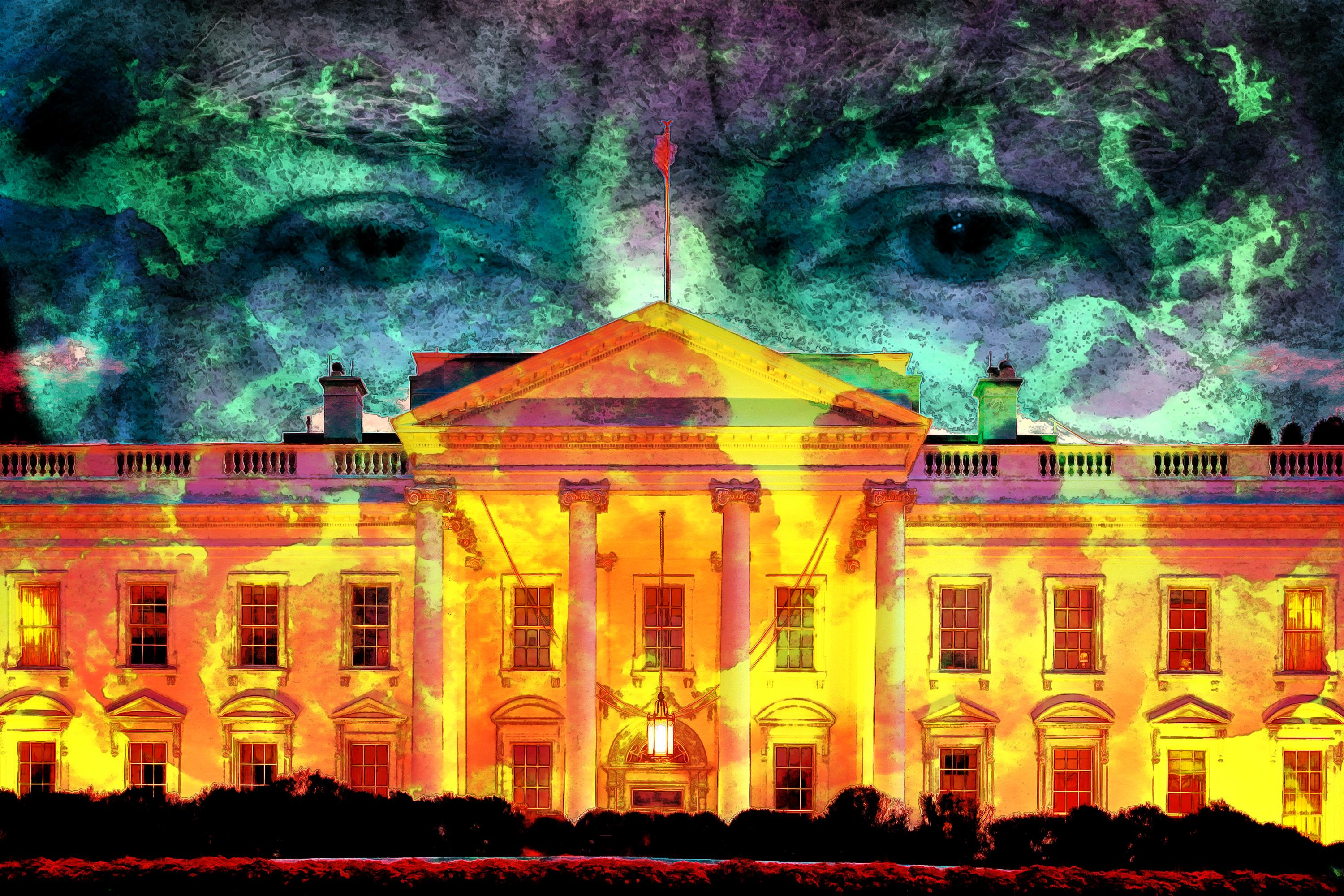
“It’s worse than you can imagine,” the leaked email begins. “An idiot surrounded by clowns. Trump won’t read anything—not one-page memos, not the brief policy papers; nothing. He gets up halfway through meetings with world leaders because he is bored. And his staff is no better. Kushner is an entitled baby who knows nothing. Bannon is an arrogant prick who thinks he’s smarter than he is. Trump is less a person than a collection of terrible traits.” The email is an employee’s withering assessment of his boss. The email is linked to Gary Cohn, a Democrat, who leads the National Economic Council under President Donald Trump, having emigrated from the comfort of Goldman Sachs to Trump’s disastrous White House. “No one will survive the first year but his family,” the email’s author surmises. “I hate the work, but feel I need to stay because I’m the only person there with a clue what he’s doing.” It’s a silly bit of exceptionalism that Cohn cites and relies on to get himself through these dark, bizarre days. Bannon may be a prick, Kushner may be a fool, and the Republican Party may be a decrepit conspiracy—but Cohn convinces himself that he, personally, will redeem Trump’s apocalyptic significance by sheer force of personal decency and competence. Rookie mistake.
Michael Wolff’s new book, Fire and Fury: Inside the Trump White House, includes Cohn’s email among a trove of similarly bitter quotes from the people who engineered Trump’s political ascent. Wolff seems to derive his book’s title from Trump’s notorious August 2017 threat to obliterate North Korea, but the fire and fury at the heart of the book mostly afflicts the president’s inner circle, including once-favored advisers such as Bannon and early loyalists such as Attorney General Jeff Sessions. In Wolff’s account, the Trump administration is an office sitcom parody of hell—a bizarro Veep—the Republican Party having rendered itself so low in a hilariously arrogant quest for the power that the president frequently uses to punish, humiliate, and disappoint his co-conspirators.
Trump has denounced the book, and he’s threatened to file a defamation lawsuit against Wolff, characterizing Fire and Fury as an extended hit piece against his administration. “Michael Wolff is a total loser who made up stories in order to sell this really boring and untruthful book,” Trump tweeted. “I’ve had to put up with the Fake News from the first day I announced that I would be running for President,” he tweeted. “Now I have to put up with a Fake Book, written by a totally discredited author,” Trump added, referring to Wolff’s reputation for explosive characterizations fueled by dubious quotes.
Trump tweets as if Wolff were uniquely obsessed with him. But, really, Fire and Fury is an account of Trump’s nascent infrastructure—the many officials, staffers, advisers, and activists who helped Trump make a mess of the Oval Office in the president’s first year. In the Trump administration, the only goal of public service is to outwit, outplay, and outlast. Trump’s people scheme against the president, and against one another, and—against their better judgment—they vent. In Wolff’s account, Trump’s power circle regards the president as a human power vacuum, so vapid and whimsical as to (implicitly) invite constant, tedious, competing manipulations. But then, Trump is so petulant and self-obsessed as to resist (or else sabotage) whatever order the so-called professionals impose upon him.
As far as presidential profiles go, Fire and Fury is working around a deeply strange central figure: Trump isn’t a politician so much as he is a dramatic Freudian construct, a storm of various biases, vices, and whims. The more composed political figures, such as senior White House staff and GOP leaders in Congress, struggle to produce a coherent and meaningful agenda. “In most White Houses, policy and action flow down, with staff trying to implement what the president wants—or, at the very least, what the chief of staff says the president wants,” Wolff writes. “In the Trump White House, policy making, from the very first instance of Bannon’s immigration [executive order], flowed up. It was a process of suggesting, in throw-it-against-the-wall style, what the president might want, and hoping he might then think that he had thought of this himself (a result that was often helped along with the suggestion that he had in fact already had the thought).” On paper, it’s a simple arrangement: the Republican masterminds do all the work on tax reform, Obamacare repeal, federal court nominations, etc., and Trump takes most, if not all, of the credit. But this diffusion of responsibilities has produced competing, unregulated factions within the administration, and Trump is too busy watching cable news to fashion a coherent, substantial agenda from the ensuing chaos. In general, governing a country is messy business, and presidential administrations are filled with petty, disagreeable figures. Historians, reporters, and alumni have described no shortage of palace intrigue about the White House. But the Trump administration’s shortage of accomplishments and thoughtful policy skirmishes, and Trump’s own obsession with media gossip, has ensured that staff scheming and self-delusion are—at least for now—all there is to understand about this White House. The chaos reigns.
Trump’s winning the Republican nomination in 2016 was a marathon humiliation for the GOP, which saw its entire laboratory of test-tube presidential candidates wrecked by a flashy bully’s blitzkrieg. Trump didn’t just beat Jeb Bush, Marco Rubio, Chris Christie, et al., he irradiated these men and, thus, narrowed the party’s future to himself. In a sense, Trump left the professional GOP with no other choice. In Congress, Ryan and Senate Majority Leader Mitch McConnell cope by occasionally pretending that the leader of their party has nothing to do with them. In the executive branch, Trump’s senior staffers and appointees cope by telling themselves, as Cohn apparently tells himself, that they’re each “the only person there with a clue what he’s doing.” Wolff posits Bannon, former White House chief of staff Reince Priebus, and Kushner as “the three gentlemen running things,” a characterization that one former White House staffer, Katie Walsh, uses to underscore Trump’s illusory comprehension of power. Walsh is simply describing a key dynamic within Trump’s White House, but she’s also illustrating the classic arrogance by which allies who take Trump for a fool make absolute fools of themselves. After all, Priebus is gone, and so is Bannon. In the press, Kushner and his wife, Ivanka Trump, are largely defined by their failure to influence the president on various concerns, including the Paris climate accord and the attempted transgender military ban. In the White House, Walsh lasted two months before she jumped ship to run a pro-Trump advocacy group. In less than a year, Trump has reduced two-thirds of “the three gentlemen running things” to obscurity and disgrace.
In Trumpland, there’s no more tragic hack than the president’s reactionary heel Bannon. Once Trump’s most loyal adviser, Bannon departed in August, and Trump has recently taken to calling him “Sloppy Steve Bannon” in response to the disgruntled former strategist’s escalating claims to having orchestrated Trump’s political career. Bannon is the very last guy you’d expect Trump to harass with another one of his signature diminutives. “Curiously, Bannon never expressed a sideways thought about Trump—not yet,” Wolff writes. “Trump’s own righteousness and soundness was perhaps too central to Bannon’s construct of Trumpism. Trump was the idea you had to support. This could seem to approach the traditional idea of respecting the office. In fact, it was the inverse. The man was the vessel: there was no Bannon without Trump. However much he might stand on his unique, even magical-seeming, contributions to the Trump victory, Bannon’s opportunity was wholly provided by Trump’s peculiar talent.” Bannon wouldn’t be the first opportunist to find one of Trump’s cheap daggers in his back, nor will he be the last, but the very fact of Bannon’s exile reveals the limits of his political intelligence. More importantly, it reveals the limits of his and Cohn’s delusional faith in themselves above and despite Trump.
Washington’s political class is populated with vapid pawns defined by hubris and bad fashion. That’s a tale as old as the city itself. But Fire and Fury reveals the extent to which Trump’s signature vice—messianic exceptionalism—has copied itself into the thinking of everyone who props the president up and suffers the slobber of insults and indignities that he then rains down upon them. The book’s secondary vulgarian, Bannon, has restrained himself from answering Trump’s recent insults with a righteous outburst or betrayal. Even in exile, Bannon remains captive to Trump. Likewise, Trump’s former campaign director Corey Lewandowski and former White House communications aides Sean Spicer and Anthony Scaramucci have defended Trump against Wolff’s account despite their own ignoble exits.
For Trump’s enablers, the humiliation knows no end, nor does their apparent belief that Trump’s hostile and erratic governance is merely a workplace riddle for them to solve instead of a political crisis. It is less shocking that the U.S. secretary of state, Rex Tillerson, would describe the president as “a fucking moron,” and that Cohn and others would characterize the president with similar disrespect, and it’s more shocking that these people would debase themselves by serving and empowering such a moron at great national expense, as if he were appointed by sacred duty and fate. As much as Trump will necessarily resist Tillerson’s characterization, I’m not so sure that the president should object to the broader portrait Wolff draws with his book. As Wolff tells it, Trump is still the smartest man in Washington, and—if Trump’s body count to date is any indication—he’ll be the last Republican standing.

